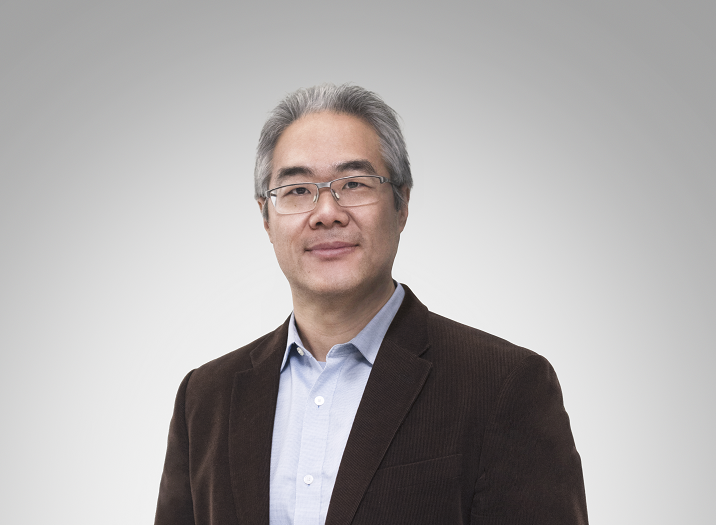
Securities China Ning Shen 2023/4/20
Quantitative investment is fast gaining traction in China’s private fund sector, thanks to its stellar performance, cutting-edge technology and pinpoint trading accuracy. In the last five years, the country has witnessed remarkable growth in this domain, with the count of quantitative investment institutions managing over 10 billion RMB skyrocketing from only 4 to an impressive 30.
In recent times, the quantitative investment sector has observed increased performance volatility. A silent but substantial realignment is underway, marking a significant shake-up. However, ultimate victory is predicted to grace only a select few institutions – those demonstrating exceptional investment research skills and technical expertise.
The Securities China reporter recently had the opportunity to engage in a comprehensive conversation with Xin Feng, Wizard Quant Co-founder and Shanghai Wizard Quant Chief Risk Officer. Mr. Feng, a seasoned quantitative investment professional with nearly 20 years in the industry, provided constructive insights during the interview. His remarkable career included as a fund manager at global investment institutions like SAC and BNP Paribas. In 2013, he decided to start his own business in China, founding Wizard Quant.
As a shining exemplar in domestic quantitative investment sector, Wizard Quant has consistently showcased remarkable performance. In 2023, the company garnered significant attention following the impressive performance of its index-enhanced products.
In discussing Wizard Quant’s evolution, Mr Feng offered insightful commentary on the challenges faced . He viewed the overall dip in quantitative excess returns as inevitable and stressed the need for superior technology to keep institutions competitive. This, he said, demanded ongoing improvement in strategies and research abilities. Additionally, while championing for more standardization, Mr Feng underscored the need for regulatory oversight in two areas: the setup of a comprehensive evaluation system to monitor historical shifts in relevant product sizes, and the potential risks of misrepresenting product performance.

▲ Xin Feng, Wizard Quant Co-founder, Shanghai Wizard Quant Chief Risk Officer
Fund managers are put to test
Index-enhanced funds, noted for their significant capacity, robust portfolios, and excess returns, play an indispensable role quantitative investment sector and are favored by many investors. However, starting from early this year, many institutions have seen a relative strain on the excess of their CSI 500 index enhanced products, leading to a general weakening.
“We expect the capital market to mature in the coming years, which will improve market pricing effectiveness and subsequently decrease excess returns to equilibrium, Mr Feng observed. A skilled quantitative fund manager seeks to accurately analyze the market’s underlying assets and correct the pricing discrepancies, ensuring reasonable returns. Aspiring to provide sustainable returns, such managers continually hone their investment and research skills, adeptly manage excess return declines, and maintain their market edge.
An excess recession ultimately tests a manager’s proficiency, often resulting in significant differentiation in performance. Based on third-party data, as of the first quarter this year, there’s been a sharp divergence in the CSI 500 index enhanced product performance of ten billion quantitative investment institutions, some products failed to surpass the CSI 500 index, resulting in a negative excess return. Thus far in 2022, the average annualized excess return has seen a noticeable decrease in comparison to previous periods.
It’s worth highlighting that the performance of Wizard Quant’s 500 index enhanced products have made a remarkable leap in excess returns. During Q1 2023, these products dominated the market in terms of excess returns, distinguishing themselves from comparable offerings.
Mr Feng, however, emphasized that short-term superior performance may be influenced by random elements. He advocated for a focus on long-term performance over one to two years, comparing such trends with industry peers. He further stressed that quantitative investments’ performance strongly depends on investment strategies and research skills, with their long-term trajectory shaped by these capacities.
In a broader economic sense, a steady rebound seems imminent this year. The receding of Covid-19 and robust return of both industrial output and consumer need are fueling this positive outlook. The current period of low valuations presents an ideal opportunity to invest in various index-enhanced products.
At the same time, for long-term investors, considering that the compounding effect of excess returns will far outweigh the impact of market ups and downs on product returns, and against the backdrop of declining excess returns year on year, it is especially important to select managers who have the strength to continue striving for excellence.
A strong talent pipeline
Team stability is one of the core conditions for quantitative investment institutions to maintain the competitiveness. In 2023, in particular, the apparent trend of investment researchers changing jobs frequently has raised many concerns. Now, building a broader talent pool and ensuring team stability have become key issues.
Wizard Quant, a leading asset management firm, with a deep-rooted expertise in team management. It regards team cultivation as a vital element, consistently focusing on the cutting-edge of quantitative research and technology, prioritizing the attraction and development of top-tier talent.
After graduating from the University of Science and Technology of China (USTC) Mr Feng furthered his education at Columbia University where he pursued a PhD in statistics. Immersed in New York’s financial atmosphere, he found himself drawn towards the field of quantitative investment. As he embarked on his professional journey on Wall Street, Feng observed numerous talented Chinese professionals making strides in the realm of quantitative investment in the U.S., However, he noted that in many instances, these individuals were still predominantly employed by non-Chinese entities, particularly those of Jewish origin.
Gradually, Feng had harbored an audacious ambition: to establish a powerful Chinese quantitative investment team capable of competing with the most influential hedge funds in Europe and the United States. His objective was to actualize this vision in the global financial market within a decade.
In 2010, the introduction of domestic stock index futures fueled the growth of quantitative trading strategies, facilitating hedging transactions and effectively controlling risks like market volatility. Seizing this opportunity, Feng returned to China in late 2013, prepared to lay the foundation for Wizard Quant.
By early 2023, Wizard Quant managed more than 20 billion yuan in assets, with a team of over 160 professionals. The staff includes in-house trained partners, esteemed external investment researchers, Wall Street veterans, as well as top institutions PhD holders and International Math Olympiad medalists. This solid talent pool strengthens the team’s structure.
“Typically, in quantitative investment teams, two models are commonly observed: one-single- team model and multi-manager platform. The one-single-team model fosters open communication and a comprehensive learning environment to accelerate team growth. While, the latter capitalizes on a diverse, multi-manager strategy, allowing multiple independent PMs to work simultaneously. Under the development of the international markets, it is difficult to say which one is better, with successful case studies existing for both models. However, considering that multi-manager platform’s limited inter-team communication may decelerate development. Wizard Quant believes the one large team model more conducive to our growth, a choice underscored since its inception.” Feng told Securities China.
The large team model places more emphasis on the cultivation of talents. In Wizard Quant, there is no “glass ceiling” . For example, the two partners who started as interns were turned into full-time members due to their outstanding ability, and then promoted them to partners playing an important role as the backbone. As you can see, the building of both teams and talent is conducive to developing in a common direction.
Currently, the number of Wizard Quant’s full-time employees has gradually increased from the initial 4-5 to over 160, spread across offices in Shanghai, Beijing, Zhuhai, Shenzhen, and Chengdu. In 2022, Wizard Quant established a new New York office, indicating a significant milestone.
AI explosion pushes quantitative investment on all fronts
ChatGPT’s crossover has pushed the AI into the spotlight. This advancement in AI is making substantial waves, especially in the field of quantitative investment where fintech is widely utilized.
Feng believed that the quantitative investment was still essentially technology-based, embracing AI and absorbing the cutting-edge technology is fundamental to survival. Whether the adoption of the assisted productivity tools such as Copilot, the alternative data using Large Language Models (LLMs) that are “close to the textual level”, or the application of machine learning for market pricing, AI’s scenarios in quantitative investment are all-encompassing.
In his perspective, the boom in AI has facilitated productivity enhancements, significantly improving the efficiency of quantitative trading. However, quantitative investment is a comprehensive system engineering, including data processing, software systems, research platforms, simulation platforms, trade and risk management,etc., in this sense, AI is only an important part of the overall system engineering, but it is not possible to say that AI contains all the connotations of quantitative investment.
Nowadays, top quantitative investment institutions have actually been using AI-related technologies to assist trading. A few years ago, the domestic head quantitative institutions began to try to use machine learning mining strategy factors.
“The quantitative investment remains a technology industry. Technically, our mission has always been revolutionizing financial computation. We will continue to improve the technology skills in order to stand firmly in the wave.” Feng added.
Maintain self-discipline and move steadily forward to go further
Along with the industry tide, a group of quantitative institutions such as Wizard Quant has developed steadily and gradually grown into key players.
Wizard Quant places particular emphasis on self-discipline. In 2015, Wizard Quant launched an equity-neutral product with modest initial funding, which had performed solidly despite market volatility. Between the second half of 2015 and 2018, the quantitative industry was heavily influenced by the financial environment. Since then, as the gradual completion of China’s financial market, Wizard Quant has seized the opportunity to make efforts in the field of asset management, and developed steadily to date.
Over the years, Wizard Quant’s philosophy has been consistent, prioritizing research and development before expanding its management scope, emphasizing factor mining before encountering setbacks, and introducing new models ahead of market trends, all with the aim of delivering enduring returns for the clients.
Wizard Quant does not set a yearly management size target. Instead, it adopts a long-term perspective, placing emphasis on the construction of IT systems, investment research, and risk management,etc,… During pivotal period, such as when a newly structured system is launched or during periods of accelerated growth, it even encourages investors to moderate the pace of their additional investments.
In recollecting his investment experience gained both domestically and internationally, Mr Feng underscored the necessity of maintaining a sense of urgency and strive for excellence. He emphasized, “Wizard Quant is devoted to keeping to a steady path, shunning the high-risk ‘gambling’ for substantial returns. We prioritize attaining achievable success. As a quantitative investment institution, our duty extends to serving our existing investors and consistently elevating our investment capabilities. As a participant, we’re also driven to aid the progression of China’s asset management, increase the wealth of the residents, improve the market efficiency , and contribute the economic growth meaningfully.”
In the future, Wizard Quant strives to become a leading high-quality quantitative institution in China. Simultaneously, it aspires to align with the progressive opening of China’s capital market, aiming to penetrate the global market. This is not only its vision but also the foundational purpose behind the establishment.
Opportunities and challenges
Opportunities and challenges coexist in the quantitative investment. For managers, it’s akin to rowing upstream – there’s no choice but to progress or recede. Feng highlighted two existing problems:
Firstly, some managers exhibit a selection bias when presenting products. Professional managers often showcase their performance on a set cycle, typically annually. However, some managers purposefully highlight periods of exceptional performance, or launch a range of products, ultimately cherry-picking those with superior performance to retain. This “survivor bias” can potentially mislead investors.
Secondly, exercise caution towards passive strategies that advocate inaction. Given the increasing challenge to achieve above-average returns, some quantitative managers, lacking confidence in their ability to seize market opportunities, opt to decrease their product’s volatility, essentially entering a “hibernation state” of reward. They even continue to promote past performances to promote their present products.
As the saying goes, ‘Smooth seas do not make skillful sailors.’
Feng said that quantitative investment institutions need to bravely confront risk. ” Only by shouldering significant risks, such as price volatility and market risks, can these institutions stand a chance to yield corresponding returns without wasting the cost of investors’ time.”
To address the above concerns, he advocated to formulate a standardized evaluation system. This would include a unified due diligence process, a focus on fluctuations in historical scale of same products, and consistency in product performance. He emphasized the importance of long-term tracking of the same product and cautioned against speculative performance display strategies.
